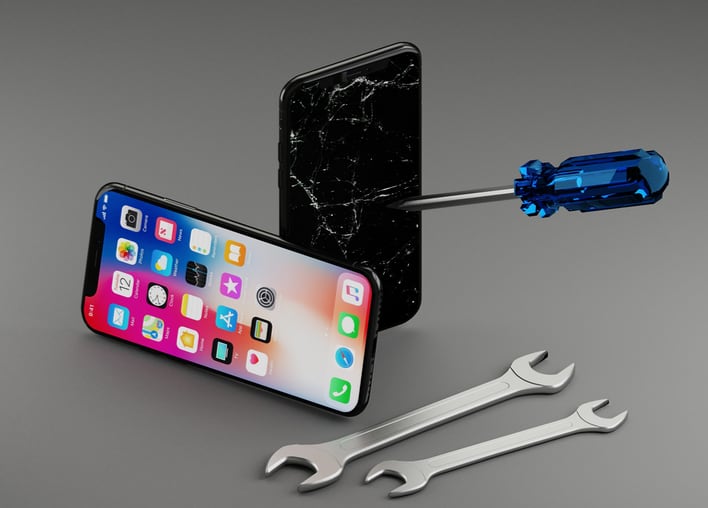Privacy Cheerleader Apple Pays Millions After Techs Post Customer’s Explicit Pics On Facebook

Well, that's precisely what happened to a 21-year-old woman who has now reached a settlement with Apple over "severe emotional distress" caused after she sent her iPhone off for what she thought would be a relatively routine repair. The phone then arrived at a Pegatron-operated facility, which performs contract work for Apple.
Rather than simply fix the unidentified woman's iPhone issues, two technicians decided to rummage through the personal photos on her phone. Even worse, the techs used her personal Facebook account to upload explicit images to her profile page. According to the lawsuit, "10 photos of her in various stages of undress and a sex video" were among the media uploaded to Facebook.
Since the photos were uploaded with the customer's Facebook account, it made it seems like she was the one that had posted them, when in fact, this wasn't the case. The woman subsequently removed the images after friends notified her of her gross invasion of privacy.
According to the legal filings, Apple performed an "exhaustive" investigation after being notified of the incident, and the two individuals responsible for uploading the images were subsequently fired. Lawyers for the woman asked for $5 million from Apple, but the case was settled out of court for millions of dollars (so we're assuming somewhere between $2 million and $5 million). For its part, Apple issued the following statement:
We take the privacy and security of our customers' data extremely seriously and have a number of protocols in place to ensure data is protected throughout the repair process. When we learned of this egregious violation of our policies at one of our vendors in 2016, we took immediate action and have since continued to strengthen our vendor protocols.
Apple has become one of the biggest opponents of the Right to Repair movement, which would give customers access to technical documentation and parts to fix their own devices should the need arise. Apple argues that it and its authorized service centers are the only ones capable of safely performing repairs that could otherwise permanently damage devices or potentially harm the customer.
As we see in this particular case, "safety" is not guaranteed even when it comes to repairs performed by Apple employees/contractors.

